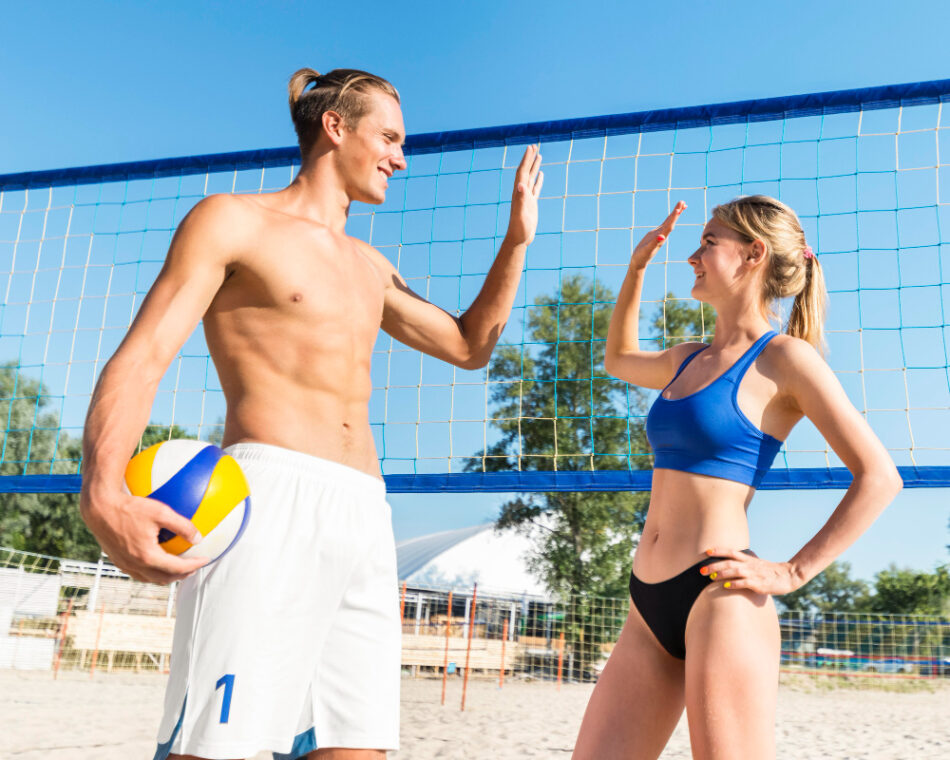Indoor volleyball is a fast -paced and skill -centered game that attracts players of all ages all over Australia. For adults to come back after years, the right training makes a difference. Many players ask if they should choose private text or group training. Both options can help improve performance, but each individual goal, learning style and commitment level provide different benefits based on levels.
For anyone who sees seriously in improving indoor volleyball, can understand how each format works, help you make a smart decision that fits your development as a player.
1. What to Expect in Group Volleyball Training
Group training is the most common format for learning indoor volleyball. Players train in small to medium-sized groups, often sorted by age or skill level. These sessions usually take place in clubs or through a volleyball academy and include team-based drills, conditioning, and game play.
The group training helps players work with others, develop communication skills and understand the court’s position in live play. If you are preparing for competitive matches, the group session actually simulates sports pressure, which is useful. In Australia, many local clubs and academies offer weekly sessions that are affordable and consistent.
However, there are limitations in group training. Players with very specific requirements or slow learning curves may not receive enough response. Coaches attract attention to many players, so some individuals cannot move on quickly.
2. The Value of Private Volleyball Lessons
Private teaching focuses on players. A coach can look carefully, make the right technique immediately and adjust the drill based on the player’s specific requirements. For the first time for indoor volleyball students, private lessons help a strong foundation without raising bad habits.
Private sessions also help advanced players who want to refine a specific skill, such as serving, blocked or backcourt defense. Athletes who work with a private trainer can improve quickly as the session goes at their speed. This format is especially popular in Volleyball Academy programs that provide one-per-one or small groups of training options.
The biggest challenge with private training is the cost. These sessions are more expensive than group classes, and scheduling may be less flexible. However, for motivated players or those with competition goals, private lessons can be worth the extra time and investment.
3. Which Option Suits You Best?
The best option depends on your goals and how to learn. To improve general sports awareness and play socially or in team settings, group training is a solid alternative. It provides structure, relapse and real sports experience. Many people also like the community’s aspect of learning with others.
If you refer to rapid skill improvement or need to address specific weaknesses, personal lessons may be better. A coach can fully focus on your game and give honest response. Players who come after injuries change positions or prepare tests often benefit from this focused care.
Some players choose both. They participate in regular group training to be involved in a team that combines current private sessions to speed up special skills. In many indoor volleyball clubs all over Australia, this combination works well, especially when coordinated through a local volleyball academy.
4. Making the Right Choice for Your Development
Whether you pick private lessons or group training, the most important thing is to show up and stay consistent. Indoor volleyball requires coordination, timing, and muscle memory—all of which take time to develop. Working with the right coach and staying motivated will get you the results you want.
In Australia, many volleyball academy programs now offer flexible options, allowing players to try both training formats. If you’re unsure, try a few group sessions first, then book a private lesson to experience the difference.
Conclusion
Choosing between private lessons and group training depends on your personal goals, learning style, and budget. Each offers unique benefits for indoor volleyball players, and both play a role in long-term development. With regular training and the right mindset, any player can improve their skills and enjoy the game even more.








